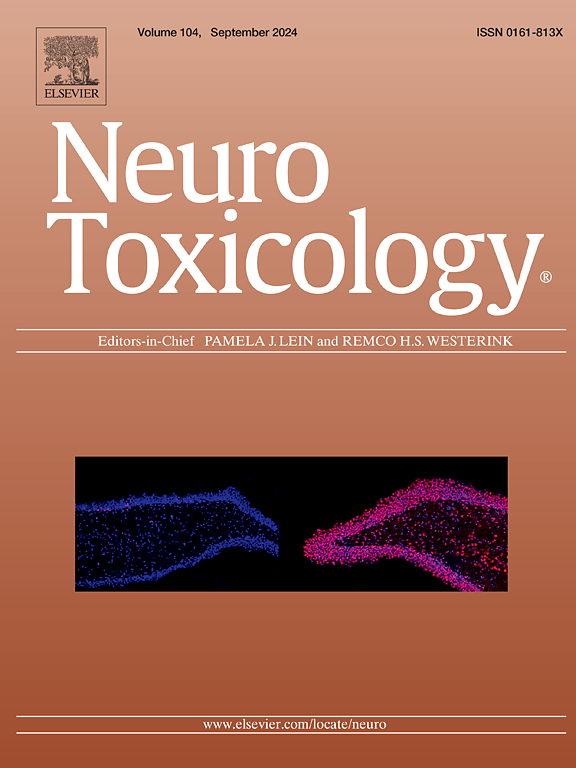Abnormal lipid metabolism and inflammatory response induced by aluminum led to the cognitive decline in mice
IF 3.9
3区 医学
Q2 NEUROSCIENCES
引用次数: 0
Abstract
As a chronic, low-toxicity metal, the effect of aluminum on human body has been paid more and more attention; however, the exact mechanism of action remains unclear. In this study, we studied the effects of aluminum on oxidative stress, inflammation, and mild cognitive impairment in mice, and analyzed changes in fecal metabolites to elucidate the potential mechanisms underlying these interactions. After 120 days of aluminum feeding, behavioral tests revealed that mice in the high-dose aluminum group exhibited cognitive decline. Regarding oxidative stress indices, MDA level increased, while GSH-PX activity, GSH content and CAT activity decreased significantly in aluminum treatment group. MAO activity increased and TC content decreased significantly. Pathological analysis of tissue sections showed that there was inflammation in brain tissue of high dose group. Pro-inflammatory factors TNF-α and IL-1β in brain tissue were significantly increased. Four metabolites (arachidic acid, linoleic acid squalene and P-cymene) involved in lipid metabolic pathways and inflammation varied significantly in the feces of each group. Therefore, aluminum-induced abnormal lipid metabolism pathway and inflammatory response may be an important cause of the cognitive decline.
铝引起的脂质代谢异常和炎症反应导致小鼠认知能力下降
铝作为一种慢性、低毒的金属,对人体的影响越来越受到人们的重视;然而,确切的作用机制尚不清楚。在这项研究中,我们研究了铝对小鼠氧化应激、炎症和轻度认知障碍的影响,并分析了粪便代谢物的变化,以阐明这些相互作用的潜在机制。喂食铝120天后,行为测试显示,高剂量铝组小鼠表现出认知能力下降。氧化应激指标方面,铝处理组MDA水平升高,GSH- px活性、GSH含量和CAT活性显著降低。MAO活性显著升高,TC含量显著降低。组织切片病理分析显示,高剂量组脑组织有炎症反应。脑组织中促炎因子TNF-α、IL-1β显著升高。各组粪便中参与脂质代谢途径和炎症反应的4种代谢物(花生酸、亚油酸、角鲨烯和对伞花烃)差异显著。因此,铝诱导的脂质代谢途径异常和炎症反应可能是认知能力下降的重要原因。
本文章由计算机程序翻译,如有差异,请以英文原文为准。
求助全文
约1分钟内获得全文
求助全文
来源期刊

Neurotoxicology
医学-毒理学
CiteScore
6.80
自引率
5.90%
发文量
161
审稿时长
70 days
期刊介绍:
NeuroToxicology specializes in publishing the best peer-reviewed original research papers dealing with the effects of toxic substances on the nervous system of humans and experimental animals of all ages. The Journal emphasizes papers dealing with the neurotoxic effects of environmentally significant chemical hazards, manufactured drugs and naturally occurring compounds.
 求助内容:
求助内容: 应助结果提醒方式:
应助结果提醒方式:


